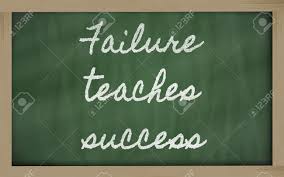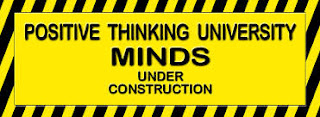How belief breaks down the imaginary wall between
success and bitter defeat
There is no doubt in my
mind that I have made as many mistakes as I have made good decisions in my life
thus far! In fact, I would argue that ‘the more I learn, the less I know’ as my
world view widens and deepens with the years. Needles to say, this is nothing
new, which is why I wonder at how folks become irrationally afraid of failure
and at times obsessively proud of their successes?
The answer is complex
with things like societal attitudes, culture and external circumstances playing
an important part in shaping our view of the world but ultimately is outside of
our control So, in life’ trials and triumphs why should we:
- Become overly concerned about what other people may think?
- Pay homage to a culture that depreciates our contribution by not ensuring we collectively benefit from our efforts in a fair and reasonably distributed manner?
- Dwell on the actions of others, good and/or bad that we cannot influence or control?
As a guy with a few life
tales to tell, I can say this! If we respond to the above with “I will do it
anyway” and not change our outlook to one where we recognise the uncontrollable
elements for what they are; then possible success turns into a certain failure.
So, after figuring out
that the struggle within is where all enrichment starts and ends, it’s my view
that we should change ourselves by:
Understanding
the external forces at work in our environment and not dwell on things we truly
cannot change.
Steve Jobs did not reinvent Apple by obsessing over the poor treatment he
received when he was removed from the company. He looked to himself, changed
from within before returning to Apple as a ‘hero’ so many years later. In
essence, he learned to let it go to a point where he could achieve his goals!
Quiten
our minds when making big decisions at big junctures in life. Ever sit back and wonder about what you
could have achieved if you had just listened better, remembered something or
sought better understanding before deciding friends are enemies and enemies are
friends? I know I have some regrets on poor decisions but undeterred by social
taboo, I have chosen to learn from them. A good tip is to learn to meditate for
5 to no more than 30 minutes a day for leaner, stronger and a more controlled
mind. It remembers more, processes information quicker and provides a better
sense of well being. Even if you do not meditate, when you consider your
position on an important topic, try to focus on 2-3 good breaths, then focus on
the topic at hand excluding all background noise in your mind. Quieten your
thought process to a single thread of the matter in front of you only.
When
challenged, pure focus must be fuelled by pure belief. If you are right, but don’t assert your
beliefs, then you will fail. Those opposed have to by definition play a dirtier
game to rewrite the definition of correct... so don’t let them! Firstly, be
clear on what is needed, be sure of what you are doing then use your belief to
ensure a genuine ‘win’ is realised after finding out what is right for the
situation, compelling others in consultation with your belief and stepping past
failure to success with a ‘group’ effort. A solid approach like that with pure
focus delivered by pure belief cannot be easily derailed.
Too often, folks fall
prey to the temptation of bitter recourse for a situation that “may” harm one’s
enemies but ultimately will harm themselves. Gandhi once said “If you change
yourself you will change the world.” I like to think we can… all we have to
do is believe and our journey starts from within illuminating the road ahead.
Sources/Credits:
Pics;
Credits;





